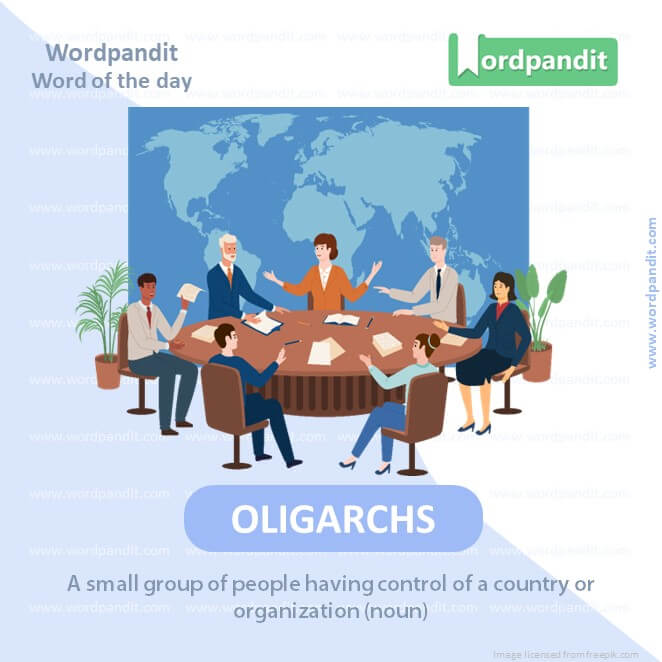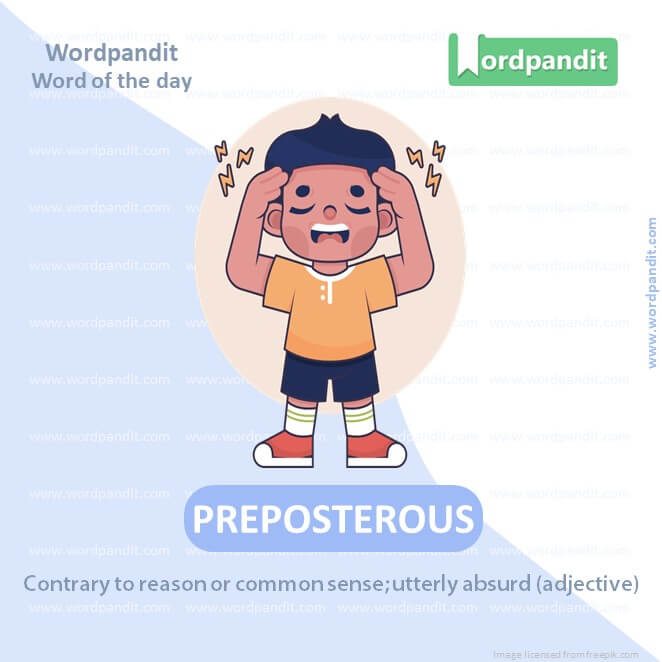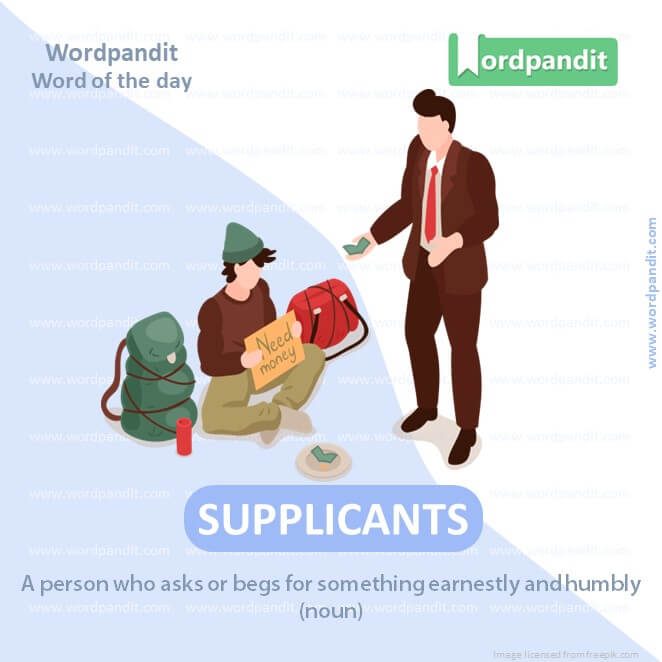Daily Vocabulary Words: List of Daily Used Words in Leading International Newspapers
Hi there. Welcome to this special section @ Wordpandit.
Our endeavour here is very simple: to highlight important daily vocabulary words, which you would come across in leading newspapers in the country. We have included the following newspapers in our selection:
• The New York Times
• The Washington Post
• Scientific American
• BBC
• The Guardian
• Psychology Today
• Wall Street Journal
• The Economist
We are putting in extensive work for developing your vocabulary. All you have got to do is be regular with this section and check out this post on a daily basis. This is your repository of words that are commonly used and essentially, we are posting a list of daily used words. Hence, this has significant practical application as it teaches you words that are used commonly in leading publications mentioned above.
Visit the website daily to learn words from leading international newspapers.

WORD-1: SELDOM
CONTEXT: Economic power seldom needs to discipline those who might challenge it. Most of the time, they do it to themselves. However extreme the ideologies promoted by corporations and oligarchs, organisational life falls broadly into line. The media, political parties, even pressure groups, accept the basic premises, preposterous as they may be, of whatever variety of capitalism currently dominates.
SOURCE: The Guardian
EXPLANATORY PARAGRAPH: Imagine you have a giant box of crayons, but there’s one color you only use once in a while, not often. That means you use it “seldom.” “Seldom” is a word that means “not often.”
MEANING: Not often; rarely. (adverb)
PRONUNCIATION: SEL-dum
SYNONYMS: Rarely, infrequently, occasionally, hardly ever, scarcely, sporadically, not often
USAGE EXAMPLE:
1. I seldom eat chocolate.
2. They seldom visit the old house.
3. We see snow in this city very seldom.
4. He seldom talks about his past.

WORD-2: OLIGARCHS
CONTEXT: Economic power seldom needs to discipline those who might challenge it. Most of the time, they do it to themselves. However extreme the ideologies promoted by corporations and oligarchs, organisational life falls broadly into line. The media, political parties, even pressure groups, accept the basic premises, preposterous as they may be, of whatever variety of capitalism currently dominates.
SOURCE: The Guardian
EXPLANATORY PARAGRAPH: Imagine a group of friends and only two or three of them always decide which game to play. Those two or three friends are like “oligarchs.” It means a small group of people who have a lot of control or power.
MEANING: A small group of people having control of a country or organization. (noun)
PRONUNCIATION: OLL-i-garks
SYNONYMS: Elites, magnates, bigwigs, power brokers, tycoons, moguls, kingpins
USAGE EXAMPLE:
1. The country was controlled by a handful of oligarchs.
2. The company’s decisions are influenced by oligarchs.
3. The oligarchs held most of the nation’s wealth.
4. The city’s politics were dominated by a few oligarchs.

WORD-3: PREPOSTEROUS
CONTEXT: Economic power seldom needs to discipline those who might challenge it. Most of the time, they do it to themselves. However extreme the ideologies promoted by corporations and oligarchs, organisational life falls broadly into line. The media, political parties, even pressure groups, accept the basic premises, preposterous as they may be, of whatever variety of capitalism currently dominates.
SOURCE: The Guardian
EXPLANATORY PARAGRAPH: Imagine someone saying that pigs can fly in the sky! That sounds silly and not true, right? When something sounds very silly or not true, we can call it “preposterous.”
MEANING: Contrary to reason or common sense; utterly absurd. (adjective)
PRONUNCIATION: preh-POSS-ter-us
SYNONYMS: Ridiculous, absurd, ludicrous, far-fetched, unbelievable, nonsensical, laughable
USAGE EXAMPLE:
1. The idea of cats barking is preposterous.
2. He had a preposterous plan to build a castle in the sky.
3. The claim seemed preposterous at first.
4. It’s preposterous to think that the earth is flat.

WORD-4: SUPPLICANTS
CONTEXT: Reports that North Korea’s dictator, Kim Jong-un, may visit Russia soon to meet Vladimir Putin – probably to discuss the supply of North Korean weapons for Putin’s war in Ukraine – point to a rather remarkable transformation of Russian-North Korean relations. During the cold war, North Korea was Moscow’s key ally in north-east Asia. But at that time, the North Koreans were, at best, poor supplicants to a mighty superpower. Today, Kim’s hermit kingdom stands tall and proud as Russia’s partner in crime.
SOURCE: The Guardian
EXPLANATORY PARAGRAPH: Imagine someone really, really wanting a cookie and they ask for it in a very sweet and humble way. Those people asking nicely for something are like “supplicants.”
MEANING: A person who asks or begs for something earnestly and humbly. (noun)
PRONUNCIATION: SUP-li-cants
SYNONYMS: Petitioner, pleader, beseecher, requester, solicitor, appellant, beggar
USAGE EXAMPLE:
1. The king was surrounded by supplicants asking for favors.
2. Supplicants kneeled before the temple.
3. He approached her as a supplicant, hoping for forgiveness.
4. The supplicants waited in line to present their requests.

WORD-5: HERMIT
CONTEXT: Reports that North Korea’s dictator, Kim Jong-un, may visit Russia soon to meet Vladimir Putin – probably to discuss the supply of North Korean weapons for Putin’s war in Ukraine – point to a rather remarkable transformation of Russian-North Korean relations. During the cold war, North Korea was Moscow’s key ally in north-east Asia. But at that time, the North Koreans were, at best, poor supplicants to a mighty superpower. Today, Kim’s hermit kingdom stands tall and proud as Russia’s partner in crime.
SOURCE: The Guardian
EXPLANATORY PARAGRAPH: Imagine someone who lives all alone in a small house in the woods and doesn’t like meeting many people. This person likes being alone and away from cities and noise. That person is called a “hermit.”
MEANING: A person living in solitude as a religious discipline or by choice. (noun)
PRONUNCIATION: HER-mit
SYNONYMS: Recluse, loner, solitary, anchorite, eremite, isolate, monk
USAGE EXAMPLE:
1. The old hermit lived in a cave for over 20 years.
2. Legends spoke of a hermit who had magical powers.
3. Many sought advice from the wise hermit.
4. He chose to live like a hermit after his family’s tragedy.
WORD-6: EXOTIC
CONTEXT: Putin’s engagement with North Korea is as old as his presidency. But the relationship was generally more exotic than practical. Russia’s real partner was South Korea, which consistently ranked among its top 10 trade partners, with nearly $30bn in trade volume in 2021. North Korea was never an attractive partner, and it was subject to very restrictive sanctions that Russia, as a permanent member of the UN security council, had helped craft. Until it invaded Ukraine, Russia tried to abide by them in letter and spirit.
SOURCE: The Guardian
EXPLANATORY PARAGRAPH: Think of a bright and colorful bird that you’ve never seen before, maybe from a faraway land. It looks so different and special! That bird is “exotic” because it’s unusual and from somewhere else.
MEANING: Attractive or striking because it is unusual or different from what is familiar. (adjective).
PRONUNCIATION: ex-OH-tic
SYNONYMS: Unusual, rare, foreign, unique, extraordinary, unfamiliar, outlandish
USAGE EXAMPLES:
1. The garden was filled with exotic flowers.
2. She wore a dress of exotic design.
3. They traveled to distant lands in search of exotic treasures.
4. The dish had an exotic flavor, unlike anything I’ve tasted before.
WORD-7: QUEST
CONTEXT: Russia’s quest for North Korean weapons and ammunition (much like the Kremlin’s purchase of Iranian drones) suggests a high degree of desperation in the Kremlin. With Russia’s vaunted military machine having been proved something of a paper tiger by the Ukrainians, there is an implied humiliation in shopping around for weapons in places like North Korea, a disdained client state at the best of times. There are also important practical considerations that Putin must weigh before embracing Kim.
SOURCE: The Guardian
EXPLANATORY PARAGRAPH: Imagine going on a big adventure to find a hidden treasure or a magic castle. This special journey or adventure to find or do something important is called a “quest.”
MEANING: A long or arduous search for something. (noun)
PRONUNCIATION: KWEST
SYNONYMS: Journey, adventure, expedition, mission, pursuit, hunt, odyssey
USAGE EXAMPLES:
1. The knight went on a quest to find the lost crown.
2. Her life’s quest was to find a cure for the disease.
3. The team embarked on a quest for gold in the Olympics.
4. The young prince’s quest led him to unknown lands.
WORD-8: VAUNTED
CONTEXT: Russia’s quest for North Korean weapons and ammunition (much like the Kremlin’s purchase of Iranian drones) suggests a high degree of desperation in the Kremlin. With Russia’s vaunted military machine having been proved something of a paper tiger by the Ukrainians, there is an implied humiliation in shopping around for weapons in places like North Korea, a disdained client state at the best of times. There are also important practical considerations that Putin must weigh before embracing Kim.
SOURCE: The Guardian
EXPLANATORY PARAGRAPH: Imagine someone talking a lot about their new toy and saying it’s the best thing ever. They’re showing it off a lot. When something is talked about a lot and shown off as being very good or special, we can say it’s “vaunted.”
MEANING: Praised or boasted about, especially in an excessive way. (adjective)
PRONUNCIATION: VAWN-ted
SYNONYMS: Celebrated, acclaimed, exalted, extolled, lauded, praised, touted
USAGE EXAMPLES:
1. The team failed to live up to its vaunted reputation.
2. The chef’s vaunted dessert was a disappointment.
3. She had a vaunted status in the community.
4. The technology didn’t deliver on its vaunted promises.
WORD-9: PAPER TIGER
CONTEXT: Russia’s quest for North Korean weapons and ammunition (much like the Kremlin’s purchase of Iranian drones) suggests a high degree of desperation in the Kremlin. With Russia’s vaunted military machine having been proved something of a paper tiger by the Ukrainians, there is an implied humiliation in shopping around for weapons in places like North Korea, a disdained client state at the best of times. There are also important practical considerations that Putin must weigh before embracing Kim.
SOURCE: The Guardian
EXPLANATORY PARAGRAPH: Imagine a tiger made out of paper. It looks scary, but if you touch it, it can’t hurt you because it’s just paper. When we call something a “paper tiger,” it means it looks strong or scary, but it’s not really.
MEANING: A person or thing that appears threatening but is ineffectual. (noun)
PRONUNCIATION: PAY-per TYE-ger
SYNONYMS: Empty threat, bluff, sham, pretense, facade, front, fake
USAGE EXAMPLES:
1. The new law turned out to be a paper tiger.
2. Many believed the enemy was just a paper tiger.
3. On closer inspection, the deal was nothing but a paper tiger.
4. She pretended to be tough, but she was just a paper tiger.
WORD-10: DISDAINED
CONTEXT: Russia’s quest for North Korean weapons and ammunition (much like the Kremlin’s purchase of Iranian drones) suggests a high degree of desperation in the Kremlin. With Russia’s vaunted military machine having been proved something of a paper tiger by the Ukrainians, there is an implied humiliation in shopping around for weapons in places like North Korea, a disdained client state at the best of times. There are also important practical considerations that Putin must weigh before embracing Kim.
SOURCE: The Guardian
EXPLANATORY PARAGRAPH: Imagine seeing a bowl of veggies when you wanted ice cream, and you think, “Yuck, I don’t want that!” When you really don’t like something and show you think it’s not worth your time, that’s “disdaining” it.
MEANING: Considered to be
unworthy of one’s consideration or respect; to look upon with contempt or scorn. (verb)
PRONUNCIATION: dis-DAYN
SYNONYMS: Scorn, despise, spurn, reject, snub, sneer at, look down on
USAGE EXAMPLES:
1. He disdained the offer as it was beneath his dignity.
2. The artist was once disdained by critics.
3. She disdained his efforts to make amends.
4. The proposal was disdained by many in the community.
Vocabulary Today
In our rapidly evolving world, the approach to learning vocabulary has been transformed. ‘Vocabulary today’ is not about rote memorization; rather, it emphasizes understanding, using, and embracing words applicable to the modern milieu. The approach to learning ‘vocabulary today’ must be dynamic and engaging.
The first step in exploring ‘vocabulary today’ involves incorporating words that are relevant to the current times. This could include terms related to technology, climate change, global issues, or trending pop culture. The aim is not only to enhance linguistic skills but also to stay abreast of the evolving language in contemporary contexts.
To absorb ‘vocabulary today’, using these words in daily conversations and writings is essential. This practice helps you internalize these words and understand their application in different scenarios.
Online resources play a significant role in learning ‘vocabulary today’. There are myriad language learning apps and websites which provide current, trending vocabulary. Utilizing these platforms can introduce you to a variety of new words and their usage in today’s parlance.
Social media can also be an innovative way to learn ‘vocabulary today’. With the influence of social media platforms like Twitter, Instagram, and TikTok, words often evolve or gain popularity quickly. Following language-related pages or profiles can expose you to these contemporary phrases and words on a daily basis.
Lastly, persistence is the key to mastering ‘vocabulary today’. Regular interaction with new words, active learning, and focused revisions will ensure that new vocabulary embeds deeply into your linguistic knowledge.
In conclusion, the journey to learn ‘vocabulary today’ requires an engagement with the evolving language landscape. By being adaptive, making optimal use of resources, and practicing consistently, you can successfully master ‘vocabulary today’, contributing to a meaningful and relevant linguistic repertoire.







